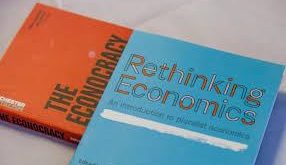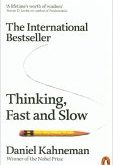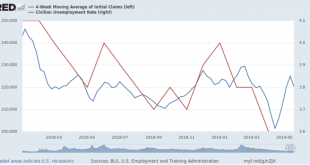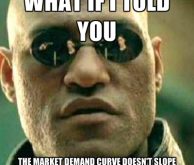from Lars Syll Economics has become a rather quaint and highly guarded discipline. We urgently need to update economics education to change this – because economics, as taught in universities, does not reflect or speak to many of the issues of the real world, be they political, environmental or social. Take the tricky entanglement between politics and economics, which economists tend to try to avoid. Such an attempt is futile. Sidelining politics, history and broader ideas while teaching...
Read More »Economics in Two Lessons: 21st century cars
My central claim, in writing Economics in Two Lessons, is that most economic policy issues can be understood in terms of opportunity costs and their relationship to prices. I was talking about 21st century (electric and self-driving) cars, and several of the issues that came up illustrated this point very neatly. Among the objections to 21st century cars are the following Since 21st century cars don’t use petrol, governments will lose the revenue needed to fund the road...
Read More »The void in neoclassical orthodoxy
from Julie A. Nelson Since the 1990s, I and some other feminist economists have been pointing out that the mainstream discipline of economics has a profoundly masculinist bias. That is, aspects of human nature, experience, and behavior that fit a culturally “macho” mold have been emphasized and elevated, while those that are culturally associated with a lesser-valued femininity have been ignored. The neoclassical orthodoxy focuses on markets and perhaps the public sphere, but categorizes...
Read More »Open thread May 28, 2019
Expected utility theory
from Lars Syll Although expected utility theory is both theoretically and descriptively inadequate, mainstream economists gladly continue to use it, as though its deficiencies were unknown or unheard of. Daniel Kahneman writes — in Thinking, Fast and Slow — that expected utility theory is seriously flawed since it doesn’t take into consideration the basic fact that people’s choices are influenced by changes in their wealth. Where standard microeconomic theory assumes that preferences are...
Read More »How many people are going to buy a second-hand Tesla that needs a $44,000 battery?
from Richard Smith If the bulk of CO2 emissions from cars are produced before the car leaves the showroom then, obviously, the best way to suppress vehicle emissions is to produce as few cars as we need and make them last as long as possible. But of course that runs directly counter to the needs of the capitalist auto industry which must seek to maximize sales by driving repetitive consumption, the faster the cycle the higher the profits. Ever since the 1920s, the auto industry has been...
Read More »Initial claims, temporary staffing point to weaker May jobs report
Initial claims, temporary staffing point to weaker May jobs report – by New Deal democrat As I’ve noted a few times recently, I’m paying additional attention to the weekly jobless claims numbers, partly because I suspected that the late Easter this year resulted in some residual seasonality (which I think has been demonstrated), and partly because if my slowdown forecast is correct, it ought to start showing up there. The initial claims report this...
Read More »Sonnenschein-Mantel-Debreu at fifty
from Lars Syll SMD theory means that assumptions guaranteeing good behavior at the microeconomic level do not carry over to the aggregate level or to qualitative features of the equilibrium. It has been difficult to make progress on the elaborations of general equilibrium theory that were put forth in Arrow and Hahn 1971 … Fifteen years after General Competitive Analysis, Arrow (1986) stated that the hypothesis of rationality had few implications at the aggregate level. Kirman (1989) held...
Read More »We wrecked the planet but if the young just read the Washington Post, they will only blame us for the national debt!
from Dean Baker You have to love Robert Samuelson. He writes a column noting that baby boomers are leaving the workforce, and some are dying off, leaving the country to our children and grandchildren. He concludes the piece with a comment on the national debt. “To boot, there’s also a massive federal debt. Good luck.” Given the enormous damage that we have done to the environment, our children and grandchildren would be enormously forgiving if all they blamed us for is the national debt....
Read More » Heterodox
Heterodox




